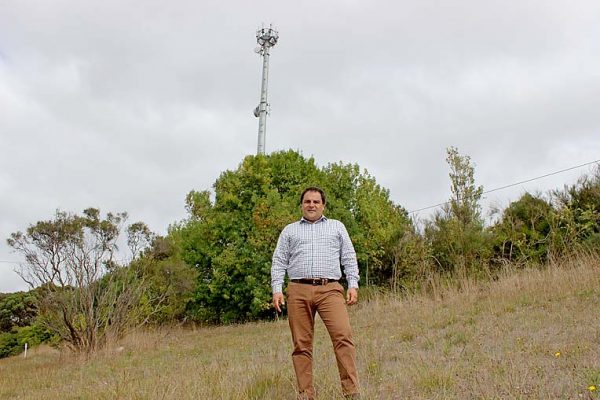
BETTER road, rail, air services, mobile phone coverage and access to quality broadband internet will help grow rural and regional Australia, according to a federal report released last Thursday.
Well, well. We all know that, but for city people making decisions in faraway places, it’s luminary.
Under the heading “connectivity”, improving such services form one of 13 recommendations of a final report titled Regions at the Ready: Investing in Australia’s Future.
None of us will be shocked to learn the report also recommends reasonable health and education services – including regional universities.
Enhanced and expanded roles for Regional Development Australia (RDA) Boards as well as investment in amenities to help regional areas look good are further recommendations.
It’s hardly rocket science.
Regarding the shift of bureaucrats from places like Canberra, Sydney and Melbourne, the report recommends decentralisation “should be part of a broader strategy for regional development.”
And, any reasons for decentralisation need to be public and clearly stated.
The report says there are 105 separate Commonwealth government agencies which employ more than 152,000 public servants.
Almost 57,000 of them, 38pc, are based in Canberra, while 90pc of them are based in the Eastern States.
Such findings follow a yearlong investigation by the Select Committee on Regional Development and Decentralisation.
Our federal Member for Barker Tony Pasin was one of the select committee members.
So how did this select committee come about?
Well, there once was a former agriculture and Deputy Prime Minister called Barnaby Joyce.
On November 25, 2016, Mr Joyce announced the Canberra based Australian Pesticides and Vetinary Medicines Authority (APVMA) would, in 2019, have a new home in Armidale.
The what?
The APVMA – it is Australia’s regulator of agricultural and veterinary (agvet) chemical products.
Mr Joyce at the time highlighted the plight of people living in overcrowded cities and claimed decentralisation was a “core business” of the Turnbull Government.
However, his announcement caused a media frenzy, particularly in Canberra, Sydney and Melbourne.
The Opposition claimed Mr Joyce was “pork barrelling” his New England electorate.
Slamming the move, it bagged decentralisation while deflecting claims of their own “pork barrelling” adventures.
Meanwhile, for as long as universities have existed, country people have been forced from their homes to big cities, at a great cost, for tertiary education.
Similarly, for many decades governments and big corporations have thought nothing of uprooting regional families.
Under the banner of “downsizing”, “merging” or “cost effective”, they have forced people to either move to the city, or resign from much loved jobs.
So Opposition screams of unfairness regarding Mr Joyce’s decentralisation announcement failed to draw much sympathy and the raucous continued.
A circuit breaker came on February 8, 2017, when the Senate voted for a select committee inquiry regarding decentralisation.
Terms of reference included the well being of country areas.
The final 198 page report is well worth reading.
Essentially, it provides the government and the Opposition with big opportunities and choices.
They can offer more rhetoric with policies to keep downsizing regional Australia while building bigger capital cities.
Or, they can provide alternatives to massive city rents, huge mortgages, traffic jams and pollution.
They can put the recommendations into action with win win solutions that both ease big city pressures and help country people to grow the regional and national economies.
• Chris Oldfield can be contacted by email at christobel47@bigpond.com







